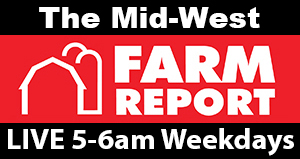Another round of heavy rains and strong winds in many areas of Wisconsin have caused the closure of some state properties and affected local business, municipalities and private property owners.
Heavy rains and storms have caused the closure of Wildcat Mountain State Park in Vernon County and approximately 50 percent of the Long Lake Campground in the Northern Unit of the Kettle Moraine State Forest in Fond du Lac County, where the National Weather Service confirmed a tornado touched down. There were no reported injuries from any of the storms. Campers who had reservations for the holiday weekend are being notified and given full refunds.
In addition, the 400, Badger, Elroy-Sparta and Military Ridge state trails are either closed or have closed sections due to flooding from previous rain storms. The Sugar River State Trail has reopened but is in poor condition and water levels remain very high along the trail and if they rise the trail could close again. The boat launch, beaches and some day-use areas at Governor Nelson State Park are also closed. For state parks, trails or other state property closures, please go to the Department of Natural Resources web site and search keywords “current conditions.”
All other parks, forests and trails remain open and offer a wide variety of recreational opportunities for the holiday weekend. Search the DNR website for “find a park” for more information.
Private wells and drinking water
Along with state park closures, the Wisconsin Department of Natural Resources has continued to offer the following guidance as many public and private property owners assess damage, check their wells and septic systems and remove sand bags and storm related debris.
Floodwaters and runoff may affect private wells. Well owners who observe flooding or changes in their water should assume their wells are contaminated and should stop drinking the water.
Homeowners are encouraged to make sure their wells are properly disinfected, then sample the well after pumping and disinfection to assure the water is safe.
Wells located in pits, basements and low-lying areas are especially susceptible to contamination.
Even without obvious signs of flooding, a well can become contaminated. More recommendations for private well owners whose wells have been inundated are available on the DNR website.
More information on bacteriological contamination of drinking water wells, along with lists of licensed well drillers, pump installer and labs certified to analyze water samples are available by searching the DNR website, dnr.wi.gov, for the keyword “wells.”
Handling sand bags and other debris
The department has online information on how to dispose of specific materials and items. Included in that information is a document on proper sandbag disposal [PDF], for disposal of both clean sand that has been removed from bags and the disposal of full sandbags.
Please visit the DNR’s Cleaning up storm debris web page to get additional information. You can also contact local authorities to find out if there are special arrangements or resources for cleaning up and disposing of storm and flood debris.
Additional information for those affected by the flooding can be found on DNR’s website and searching key word “Flood.” The Wisconsin Department of Health Services also provides information and links to resources on its Flood Hazards and Recovery page:www.dhs.wisconsin.gov/flood (exit DNR).
